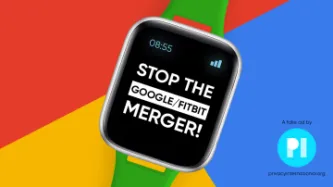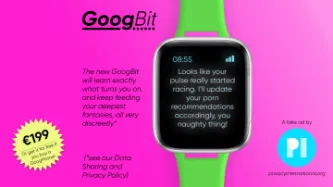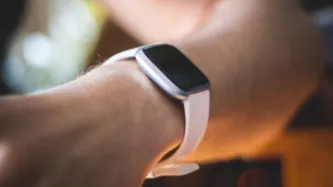Advanced Search
Content Type: Explainer
The lead author of this piece is Elettra Bietti, a doctoral student at Harvard Law School and volunteer for Privacy International
Network effects
Social media companies and other digital business models are driven by so-called network effects. A network effect (also called a network externality) is a service’s propensity to improve functionally as the number of people using it and the amount of data collected through it increases. For example, as the number of Facebook users increases, Facebook…
Content Type: News & Analysis
No doubt this is turning out to be a summer full of news about internet companies' digital dominance.
In June, Google notified the European Commission of its plan to acquire Fitbit - a plan that we immediately identified would raise grave concerns for our well-being as consumers.
Today the European Commission has made its decision. And it's good news.
The European regulator has decided to undertake a detailed 'Phase 2' investigation, rather than just green light Google's plans, voicing also the…
Content Type: Long Read
Monday, 16 June 2025
It’s 7:33 am. Lila’s GoogBit watch vibrates. “You got 6 hours and 57 minutes of sleep last night, including 2 hours and 12 minutes of deep sleep”, the watch reads. “In total, you tossed and turned for 15 minutes only”. Taking into account Lila’s online browsing activity, her sleep pattern, the recent disruptions in some of her other biorhythms, as well as her daily schedule, GoogBit watch has calculated the very best minute to wake her up.
Content Type: Long Read
Photo by Cade Roberts on Unsplash
For those of you who don't spend the most productive part of your day scanning the news for developments about data and competition, here's what has been going on in the UK since summer 2019.
Basically, the UK competition authority started an investigation into online platforms and digital advertising last summer, and issued their preliminary findings in December 2019, concluding that Facebook and Google are very powerful in the search engine and social media…
Content Type: News & Analysis
Yesterday, we found out that Google has been reported to collect health data records as part of a project it has named “Project Nightingale”. In a partnership with Ascension, Google has purportedly been amassing data for about a year on patients in 21 US states in the form of lab results, doctor diagnoses and hospitalization records, among other categories, which amount to a complete health history, including patient names and dates of birth.
This comes just days after the news of Google'…
Content Type: News & Analysis
Even if we are not Fitbit users, we all need to stop and think about the implications of this merger. There is a reason that our health data is subject to higher levels of protection - its intimate, reveals vast amounts about our everyday lives, and the potential consequences if exploited can be devastating. Google should be keeping its hands off our health data.
Sign our letter to the European Commission, asking them to block the Google/Fitbit merger.
Let's tell Google, 'NOT ON OUR WATCH!'





